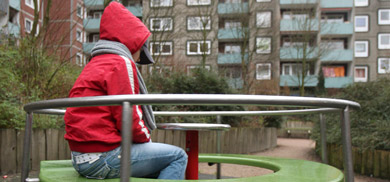Some 26 percent of Germans are poor or in danger of slipping into poverty, according to a report expected on Monday from German Minister of Labour and Social Affairs Olaf Scholz, a Social Democrat.
“We need a new solidarity. This will be impossible without the help of those with the highest wages and the most capital,” SPD MP Karl Lauterbach told the newspaper Neue Presse in its Monday edition.
Lauterbach called for income tax relief for the poorest Germans.
But he said taxes on inheritances and other assets should be increased.
“We must consider placing a larger share of the tax burden on the income that grows the most quickly – and often without a great deal of effort,” Lauterbach told the newspaper.
The SPD is the junior governing partner in a parliamentary grand coalition with Chancellor Angela Merkel’s conservative Christian Democrats.
Fritz Kuhn, chairman of the opposition Green Party, said the governing coalition has failed to take action.
The coalition must “quit with the lamenting and finally take action,” Kuhn told the newspaper Berliner Zeitung on Monday.
Klaus Ernst, a chief of the hard-line socialist party The Left, said the poverty report to be presented on Monday documents the failure of the SPD.
“While they have been in power the number of millionaires has doubled while poverty has increased significantly,” Ernst told the Berliner Zeitung.




 Please whitelist us to continue reading.
Please whitelist us to continue reading.